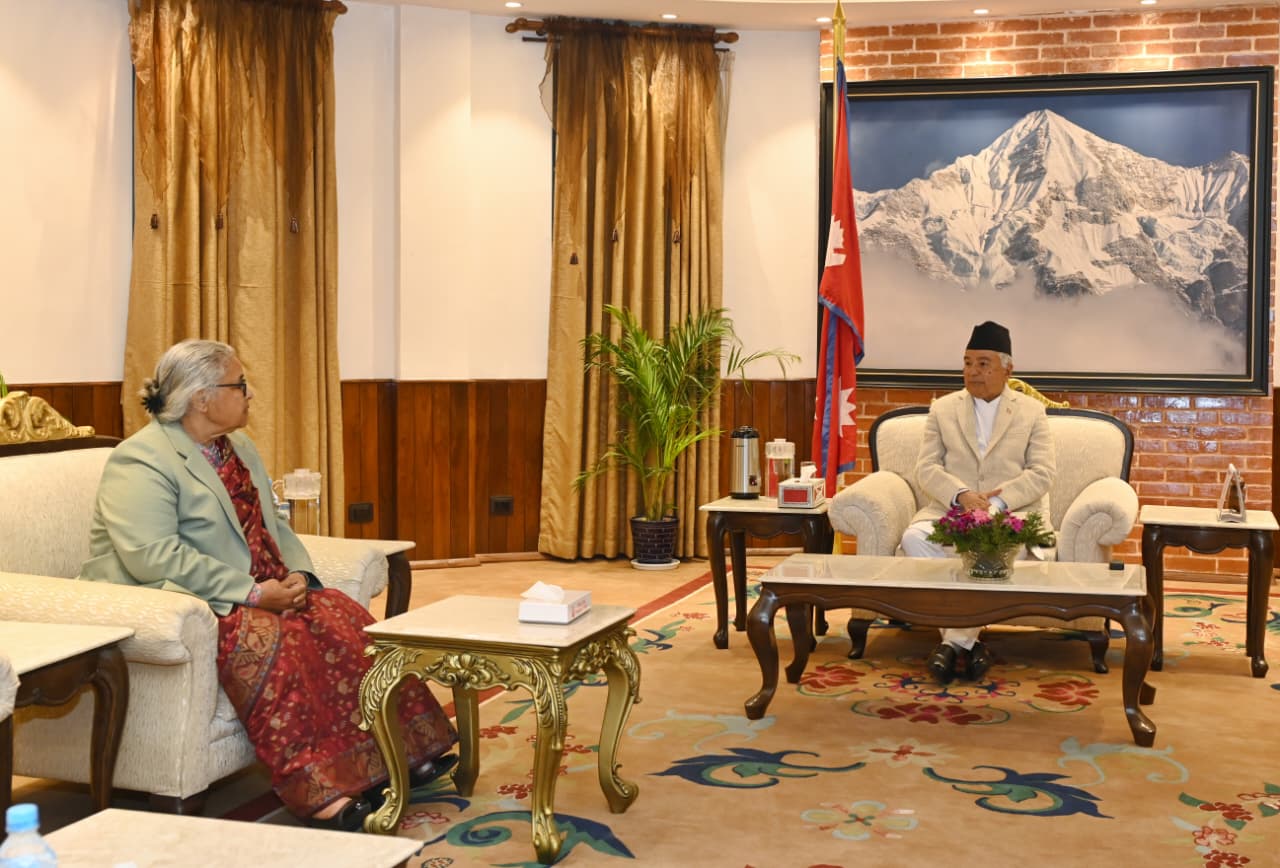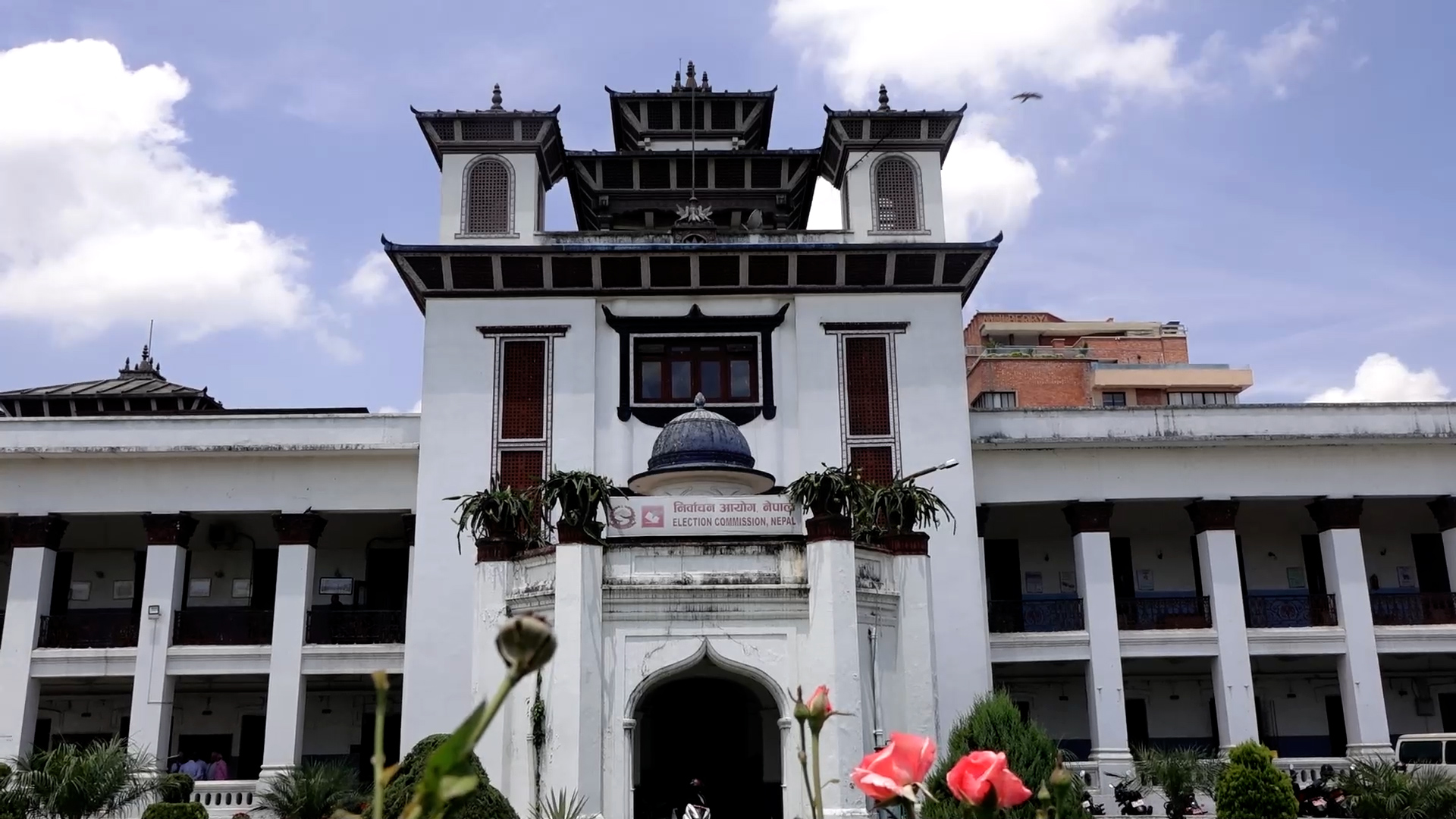The Sacredness of Matatirtha Aunsi: Honoring the Eternal Presence of Mothers

In Nepal’s rich cultural and spiritual heritage, MatatirthaAunsi—widely known as Mother’s Day—holds a sacred place in the hearts of the people. Celebrated on the new moon day of the month of Baisakh, this day is more than just a tribute to motherhood. It is a heartfelt acknowledgment of the nurturing force that gives us life, shapes our values, and provides unconditional love. It is a day that resonates deeply with the timeless Sanskrit verse: “Janani JanmabhumishchaSwargadapiGariyasi”—”Mother and motherland are greater than heaven.”
Mothers are the first teachers, caretakers, and the silent architects of human civilization. From birth, a mother becomes the source of sustenance, comfort, and moral grounding. Her wisdom may not always come through formal education, but through her actions, sacrifices, and tireless love. She exemplifies the very essence of compassion, resilience, and spiritual strength.
The observance of MatatirthaAunsi is a symbolic and emotional ritual where individuals offer tarpan—a sacred offering—especially if their mothers have passed away. People visit Matatirtha, a revered pilgrimage site near Kathmandu, where it is believed that the souls of mothers receive the offerings and blessings. For those whose mothers are still alive, the day is spent in acts of gratitude—offering gifts, preparing special meals, and expressing love and reverence. This tradition emphasizes the belief that serving one’s mother is akin to serving divinity.
The cultural significance of this day transcends religion and ethnicity. It is a universal message that no one can care for a person like their mother does—no guru, no deity, or friend can match her unwavering support and affection. Honoring a mother is, therefore, not just a family ritual; it is a spiritual act that aligns with the values of compassion, duty, and gratitude.
MatatirthaAunsi reminds us that the mother is the heart of humanity in a world that often overlooks emotional labor and selfless love. By offering tribute to her, we are honoring the very foundation of life and the interconnectedness of all beings. Honoring mothers is honoring the whole, the universe, the sacred life force that holds the world together.
Thus, MatatirthaAunsi is not merely a cultural festival but a soulful celebration of the eternal light that mothers represent in our lives and the cosmos.
The act of remembering and honoring mothers on MatatirthaAunsi also serves as a spiritual awakening—an opportunity to reflect on the divine qualities of motherhood: creation, nurturing, forgiveness, and boundless love. In many Eastern traditions, the mother is viewed not merely as a parent but as an embodiment of the universal feminine principle, known in Sanskrit as Shakti—the divine energy that animates life. In this sense, when we offer our respect to mothers, we bow to the universe’s creative force.
Moreover, the cultural observance of this day also teaches the importance of ancestral memory and gratitude. For those who have lost their mothers, MatatirthaAunsi is a day of solemn remembrance. It bridges the living and the departed, allowing individuals to connect with their mothers’ spirits through ritual offerings (tarpan), prayer, and reflection. Pilgrimages to the sacred site of Matatirtha carry profound emotional and spiritual significance. It is believed that even a single drop of tear offered at Matatirtha in remembrance of a mother can bring peace to her soul and blessings to the devotee.
This day also reminds us of the moral and ethical debt we owe to our mothers and caregivers. It fosters a culture of intergenerational respect, emphasizing that mothers’ care and affection must be reciprocated with love, service, and dignity. In a fast-paced modern world where elderly parents are sometimes neglected or isolated, MatatirthaAunsi serves as a cultural counterbalance, reminding society of the sacred duty of filial piety—a virtue deeply rooted in both Eastern and Western moral traditions.
The relevance of this day extends beyond the personal. In a broader social context, it urges us to value and support all forms of caregiving, often performed by women and mothers in households and communities. From raising children to holding families together through crises, mothers play a pivotal role in the well-being and development of society. Recognizing their work is a matter of emotion, but of justice and social ethics.
In a time of environmental crisis and social fragmentation, honoring the mother figure—whether our biological mothers, Mother Earth, or the nurturing women in our lives—calls for a return to compassionate values, care-based ethics, and a worldview where interdependence and gratitude replace competition and consumption.
Ultimately, MatatirthaAunsi is a day of unity. It cuts across economic class, religion, and geography. Whether rich or poor, urban or rural, everyone shares the sacred bond with their mother. In this sense, honoring one’s mother becomes an act of honoring the world itself, as she represents the first experience of love, sacrifice, and humanity in every life.
The verse “Janani JanmabhumishchaSwargadapiGariyasi” reminds us that the mother and the motherland are greater than heaven. Let us, therefore, carry forward the spirit of MatatirthaAunsi not only on this special day but throughout our lives—by embodying gratitude, compassion, and reverence for the one who gave us life.
Why We Should Care for Our Mothers
Caring for our mothers is a moral responsibility and a profound act of love, gratitude, and humanity. From conception, mothers endure physical, emotional, and spiritual transformations to nurture life. They are our first teachers, healers, protectors, and constant support. A mother’s love is unconditional—it expects nothing in return and remains unwavering, even in the most challenging times.
1. Mothers are the foundation of our emotional and moral development—they shape our values, guide our conscience, and instill empathy and resilience.
2. Caring for our mothers is a form of reciprocity—an ethical acknowledgment of their sacrifices and lifelong devotion.
3. Neglecting one’s mother severs the roots of personal integrity and social harmony; honoring her affirms our inner dignity and moral compass.
Neglecting one’s mother is not merely an act of personal oversight—it represents a deeper fracture in the foundation of individual character and moral responsibility. Our mothers are often our first teachers, caregivers, and protectors. They provide the earliest lessons in compassion, resilience, sacrifice, and unconditional love. When one fails to acknowledge or care for the person who gave them life and nurtured their earliest years, it reflects a disregard for the very values that shape human decency. Such neglect can ripple outward, affecting one’s ability to form meaningful relationships, demonstrate empathy, and contribute positively to the larger social fabric.
On the other hand, honoring one’s mother is not simply a cultural or religious ritual—it is a powerful affirmation of our inner dignity and moral compass. It acknowledges the profound debt we owe to the nurturing forces in our lives. In doing so, we reaffirm our own humanity and the interdependent bonds that sustain it. Honoring a mother is also a reflection of gratitude, humility, and self-awareness—virtues that cultivate harmony in families and communities alike.
Moreover, this act transcends the individual and becomes a symbolic gesture of respect for life itself. Just as our biological mother brings us into the world, so does Mother Earth sustain our existence. Therefore, reverence for one’s mother becomes a mirror for reverence toward nature, community, and the sacredness of all life. By honoring our mothers, we preserve our lineage, respect our cultural and moral traditions, and celebrate the essence of existence itself. It is through this honoring that we find continuity with the past, grounding in the present, and hope for a more compassionate future.
Why We Should Care for Mother Earth
Mother Earth, like our biological mother, nourishes, sustains, and shelters us. She provides everything we need—food, water, air, and life. Yet, we often take her generosity for granted, leading to environmental degradation, biodiversity loss, and climate instability.
The Earth is a living system; we are part of her interconnected web of life. To harm her is to harm ourselves.
Environmental stewardship ensures the survival of future generations, just as a mother plans and sacrifices for her children’s future.
Sustainable living is an ethical and spiritual responsibility that reflects our maturity as individuals and societies (Capra & Luisi, 2014).
Honoring Mother and Mother Earth Is Honoring Ourselves
When we honor our mothers and Mother Earth, we are, in fact, honoring our own origin, identity, and essence. Our lineage is carried through the wombs of generations of mothers, and our survival is supported by the womb of the Earth.
Honoring the mother is honoring the lineage, the long chain of ancestors who passed on their love, wisdom, and strength.
Respecting the Earth is an act of self-respect—it acknowledges that our well-being is inseparable from the planet’s health.
To honor is to remember—and in remembering, we become rooted in our values, culture, and humanity.
Caring for our mothers and the Earth is a sacred responsibility. Both are givers of life; without them, our existence is unimaginable. Their unconditional giving teaches us the deepest truths about love, sacrifice, and interdependence. When we bow before them—through ritual, service, or reverence—we are not diminishing ourselves, but uplifting our souls. We affirm our place in the universe, celebrate our roots, and safeguard our future.
As the ancient saying declares: “Janani JanmabhumishchaSwargadapiGariyasi”—our mother and motherland are greater than heaven. In this wisdom lies the timeless truth that to honor our mother and Mother Earth is to honor all life, including our own.
Facebook Comment
latest Video
Trending News
- This Week
- This Month

















